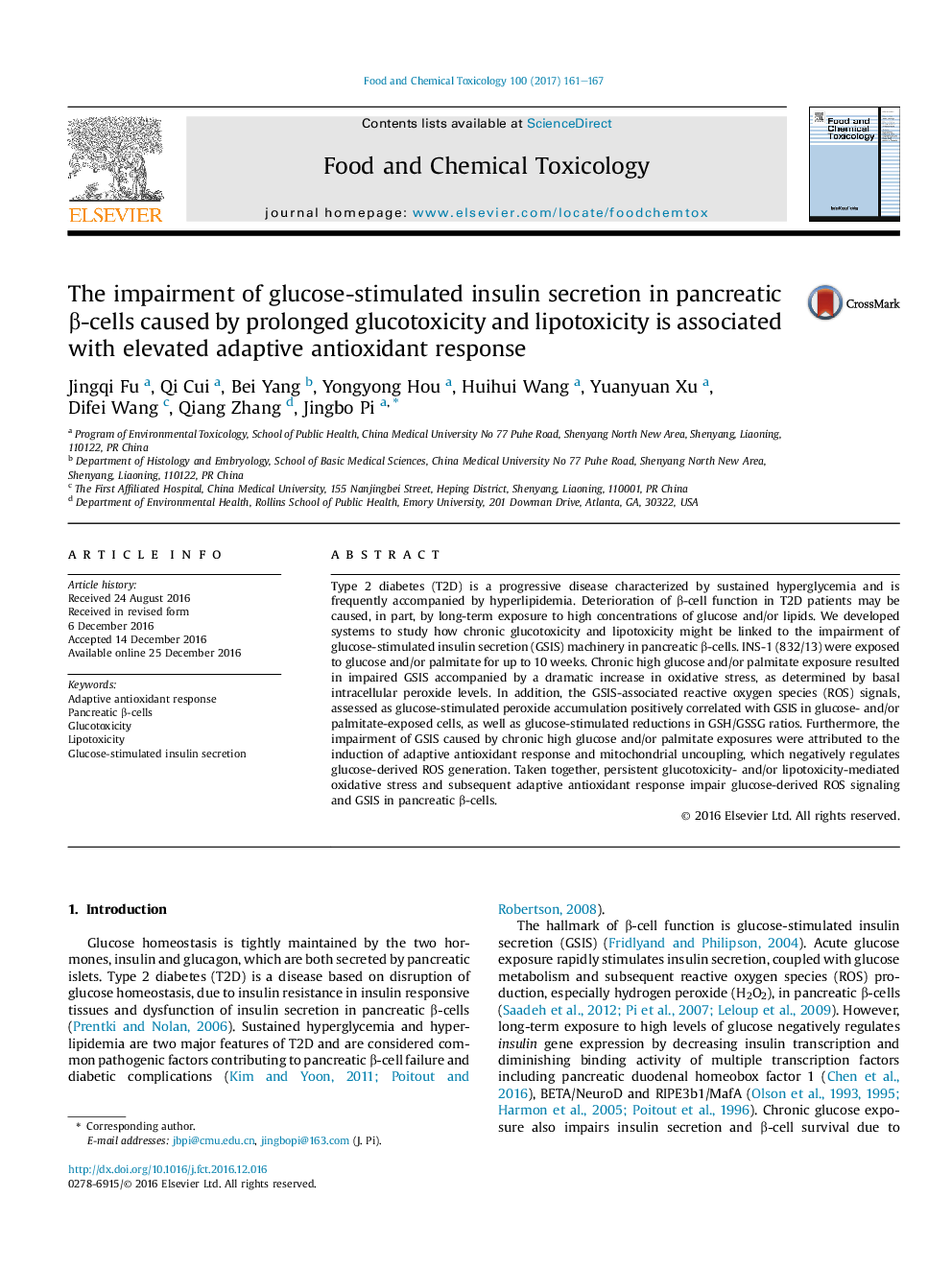| کد مقاله | کد نشریه | سال انتشار | مقاله انگلیسی | نسخه تمام متن |
|---|---|---|---|---|
| 5560283 | 1561745 | 2017 | 7 صفحه PDF | دانلود رایگان |

- ROS derived from glucose metabolism are additional metabolic signals that modulate insulin secretion in pancreatic β-cells.
- GSIS-associated reactive oxygen species (ROS) signals positively correlated with GSIS.
- Persistent glucotoxicity- and/or lipotoxicity-mediated oxidative stress and subsequent adaptive antioxidant response impair glucose-derived ROS signaling and GSIS in pancreatic β-cells.
Type 2 diabetes (T2D) is a progressive disease characterized by sustained hyperglycemia and is frequently accompanied by hyperlipidemia. Deterioration of β-cell function in T2D patients may be caused, in part, by long-term exposure to high concentrations of glucose and/or lipids. We developed systems to study how chronic glucotoxicity and lipotoxicity might be linked to the impairment of glucose-stimulated insulin secretion (GSIS) machinery in pancreatic β-cells. INS-1 (832/13) were exposed to glucose and/or palmitate for up to 10 weeks. Chronic high glucose and/or palmitate exposure resulted in impaired GSIS accompanied by a dramatic increase in oxidative stress, as determined by basal intracellular peroxide levels. In addition, the GSIS-associated reactive oxygen species (ROS) signals, assessed as glucose-stimulated peroxide accumulation positively correlated with GSIS in glucose- and/or palmitate-exposed cells, as well as glucose-stimulated reductions in GSH/GSSG ratios. Furthermore, the impairment of GSIS caused by chronic high glucose and/or palmitate exposures were attributed to the induction of adaptive antioxidant response and mitochondrial uncoupling, which negatively regulates glucose-derived ROS generation. Taken together, persistent glucotoxicity- and/or lipotoxicity-mediated oxidative stress and subsequent adaptive antioxidant response impair glucose-derived ROS signaling and GSIS in pancreatic β-cells.
Journal: Food and Chemical Toxicology - Volume 100, February 2017, Pages 161-167